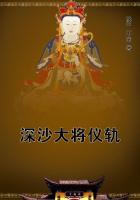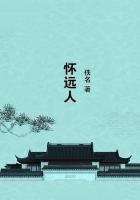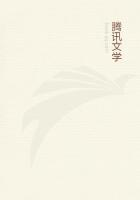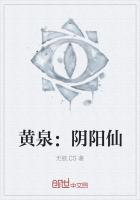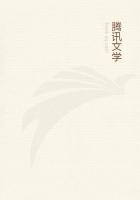The harvest customs just described are strikingly analogous to the spring customs which we reviewed in an earlier part of this work. (1) As in the spring customs the tree-spirit is represented both by a tree and by a person, so in the harvest customs the corn-spirit is represented both by the last sheaf and by the person who cuts or binds or threshes it. The equivalence of the person to the sheaf is shown by giving him or her the same name as the sheaf; by wrapping him or her in it; and by the rule observed in some places, that when the sheaf is called the Mother, it must be made up into human shape by the oldest married woman, but that when it is called the Maiden, it must be cut by the youngest girl. Here the age of the personal representative of the corn-spirit corresponds with that of the supposed age of the corn-spirit, just as the human victims offered by the Mexicans to promote the growth of the maize varied with the age of the maize. For in the Mexican, as in the European, custom the human beings were probably representatives of the corn-spirit rather than victims offered to it. (2) Again the same fertilising influence which the tree-spirit is supposed to exert over vegetation, cattle, and even women is ascribed to the corn-spirit. Thus, its supposed influence on vegetation is shown by the practice of taking some of the grain of the last sheaf (in which the corn-spirit is regularly supposed to be present), and scattering it among the young corn in spring or mixing it with the seed-corn.
Its influence on animals is shown by giving the last sheaf to a mare in foal, to a cow in calf, and to horses at the first ploughing. Lastly, its influence on women is indicated by the custom of delivering the Mother-sheaf, made into the likeness of a pregnant woman, to the farmer's wife; by the belief that the woman who binds the last sheaf will have a child next year; perhaps, too, by the idea that the person who gets it will soon be married.
Plainly, therefore, these spring and harvest customs are based on the same ancient modes of thought, and form parts of the same primitive heathendom, which was doubtless practised by our forefathers long before the dawn of history. Amongst the marks of a primitive ritual we may note the following:
1. No special class of persons is set apart for the performance of the rites; in other words, there are no priests. The rites may be performed by any one, as occasion demands.
2. No special places are set apart for the performance of the rites; in other words, there are no temples. The rites may be performed anywhere, as occasion demands.
3. Spirits, not gods, are recognised. (a) As distinguished from gods, spirits are restricted in their operations to definite departments of nature.
Their names are general, not proper. Their attributes are generic, rather than individual; in other words, there is an indefinite number of spirits of each class, and the individuals of a class are all much alike; they have no definitely marked individuality; no accepted traditions are current as to their origin, life, adventures, and character. (b) On the other hand gods, as distinguished from spirits, are not restricted to definite departments of nature. It is true that there is generally some one department over which they preside as their special province; but they are not rigorously confined to it; they can exert their power for good or evil in many other spheres of nature and life. Again, they bear individual or proper names, such as Demeter, Persephone, Dionysus; and their individual characters and histories are fixed by current myths and the representations of art.
4. The rites are magical rather than propitiatory. In other words, the desired objects are attained, not by propitiating the favour of divine beings through sacrifice, prayer, and praise, but by ceremonies which, as I have already explained, are believed to influence the course of nature directly through a physical sympathy or resemblance between the rite and the effect which it is the intention of the rite to produce.
Judged by these tests, the spring and harvest customs of our European peasantry deserve to rank as primitive. For no special class of persons and no special places are set exclusively apart for their performance; they may be performed by any one, master or man, mistress or maid, boy or girl; they are practised, not in temples or churches, but in the woods and meadows, beside brooks, in barns, on harvest fields and cottage floors. The supernatural beings whose existence is taken for granted in them are spirits rather than deities: their functions are limited to certain well-defined departments of nature: their names are general like the Barley-mother, the Old Woman, the Maiden, not proper names like Demeter, Persephone, Dionysus. Their generic attributes are known, but their individual histories and characters are not the subject of myths. For they exist in classes rather than as individuals, and the members of each class are indistinguishable. For example, every farm has its Corn-mother, or its Old Woman, or its Maiden; but every Corn-mother is much like every other Corn-mother, and so with the Old Women and Maidens.
Lastly, in these harvests, as in the spring customs, the ritual is magical rather than propitiatory. This is shown by throwing the Corn-mother into the river in order to secure rain and dew for the crops; by ****** the Old Woman heavy in order to get a heavy crop next year; by strewing grain from the last sheaf amongst the young crops in spring; and by giving the last sheaf to the cattle to make them thrive.

